If you reside in an excessively hot area, choosing and buying a particular air conditioner brand is essential. For instance, between Rheem and Carrier brands, would you know which is better?
Both can cool your home efficiently, but you must know that cooling is not the only thing to consider when buying one. We did thorough research to find out which to choose between Carrier and Rheem, and here's what we found.
You would choose Carrier over the Rheem brand under the following conditions:
- excellent when it comes to quality
- more satisfactory in performance and design
- higher in the SEER rating
On the other hand, you would choose Rheem over the Carrier brand under the these conditions:
- cheaper in pricing
- better in warranty
- needs lesser maintenance
- easy to find replacement parts
These factors are so crucial that you may want to delve into them further. We will discuss the detailed information, as well as help you answer some related questions. So, without further ado, read on!
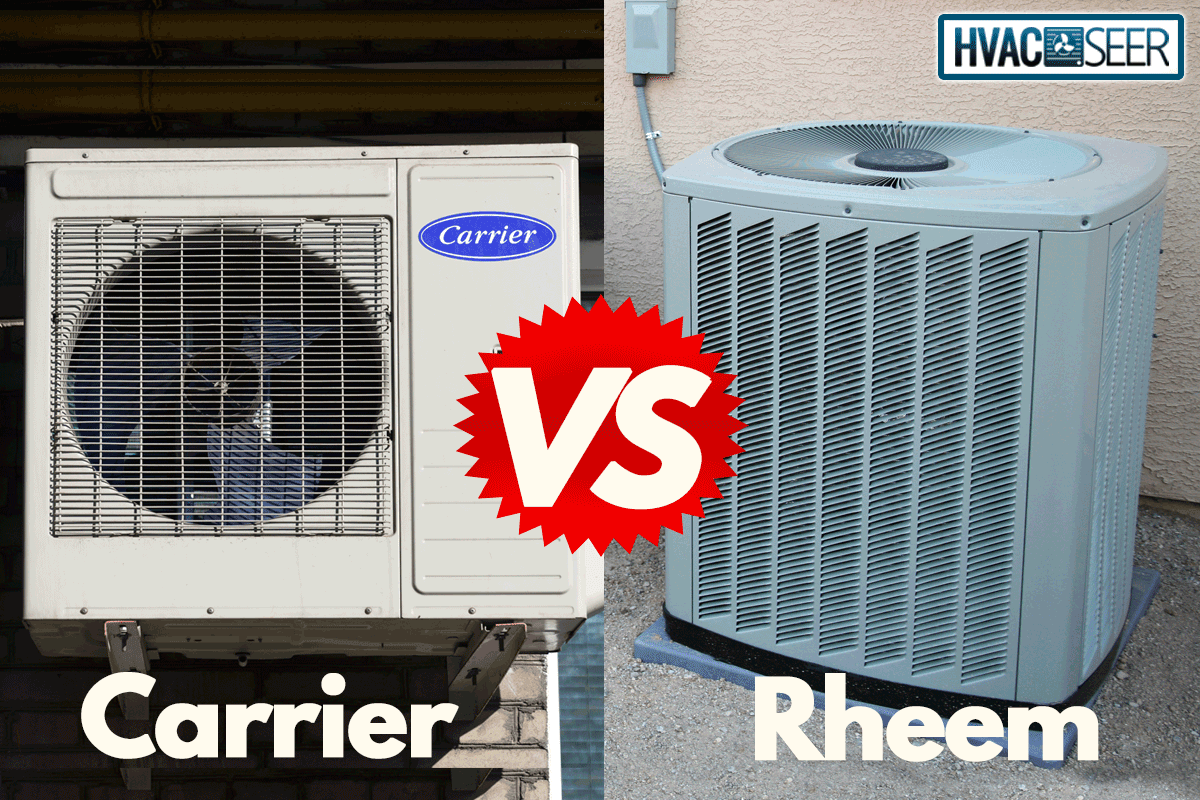
How To Choose Between Carrier And Rheem
In the past, people regarded air conditioning units as luxury objects. However, with the gradual temperature increases gradually each year, they have become a necessity during the summer.
If you reside in a hot climate, you understand the importance of a powerful and efficient air conditioning unit that operates without much upkeep.
Carrier and Rheem are two of the top brands for air conditioners, and they are the brands that many HVAC contractors prefer. Both can efficiently cool your home, but that alone won't be enough.
Numerous individuals believe that getting suggestions from HVAC professionals will help them to make better decisions, which is not always the case.
Companies pay some of the best HVAC professionals to recommend their brand to earn a commission.
To make the most satisfactory options, conduct your research, such as reading reviews and soliciting suggestions from friends.
Below are some considerations to weigh when deciding whether to buy Rheem or Carrier.
Why Choose Carrier?
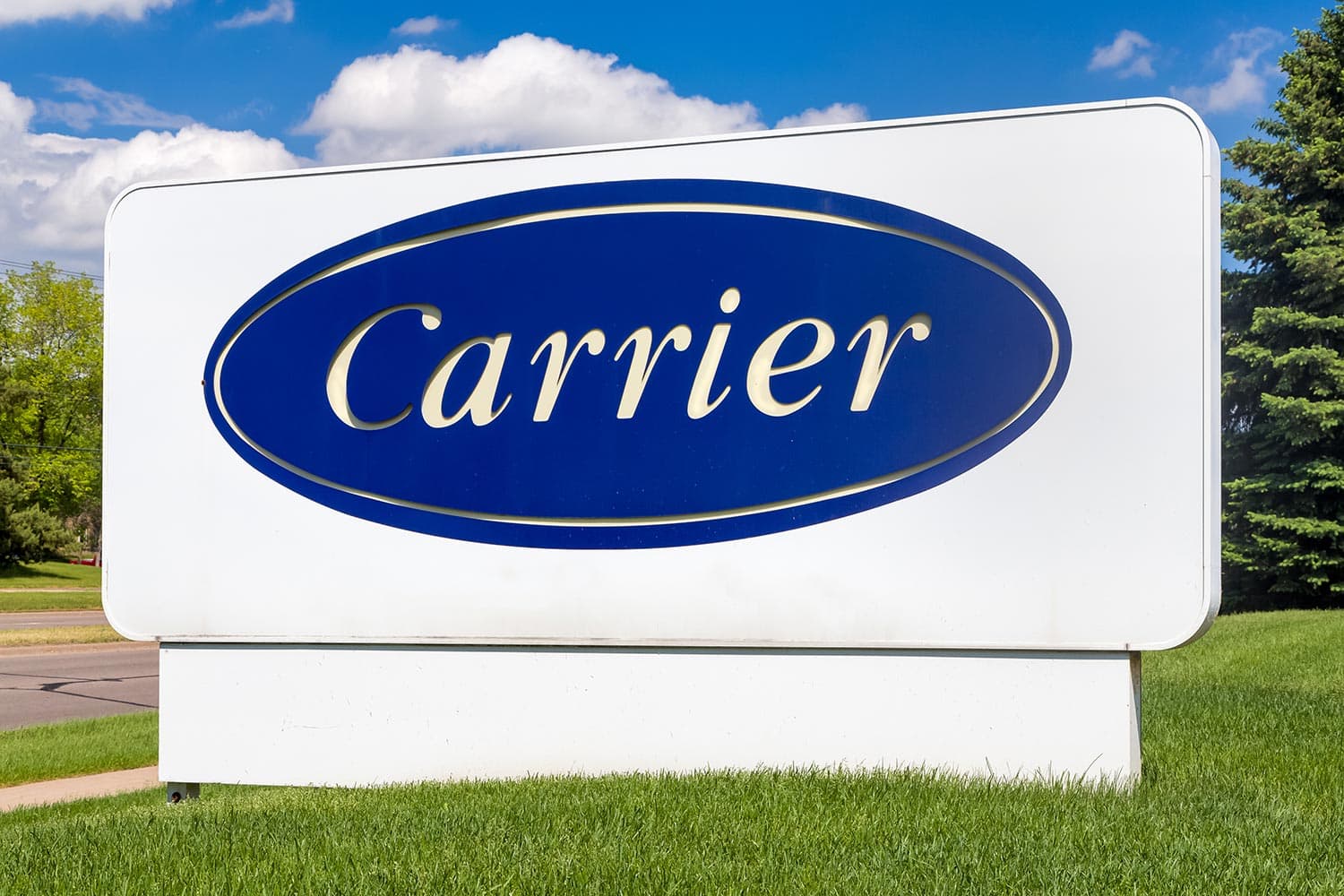
1. Quality
When comparing Rheem and Carrier in terms of quality, the latter has a much better reputation. It is common in many brands for the design and body structure of air conditioning units to differ.
If you want to own one with the best quality, you should look into Carrier, which is superior in terms of design, cooling, and efficiency, among other things. Rheem air conditioners are less efficient, and the parts break more frequently than Carrier air conditioners.
In Rheem air conditioners, pipe and refrigerant leakage happen more often than in Carrier air conditioning systems. If you don't want to replace your air conditioner every year or two, Carrier is a more promising option.
2. Performance and Design
Along with performance, excellent design is essential in this modern generation. Compared to older air conditioning units, newer units are more elegant and visually appealing.
Both Rheem and Carrier have new air conditioning units with modern looks to meet current demands. Carrier air conditioners have a good design and excellent performance, but numerous users still prefer Rheem.
An expensive Carrier air conditioning unit will not perform optimally if improperly installed. So, it would be best to hire the best HVAC professionals and get the best performance out of your air conditioner.
A cheap air conditioning unit that is correctly installed will outperform a pricey but improperly installed one.
4. SEER Rating
If you are someone who is not that familiar with air conditioning units, SEER stands for Seasonal Energy Efficiency Ratio.
An air conditioner's SEER rating ranges from 13-to 21. The higher the SEER rating of your air conditioner, the better its efficiency.
After asking for the primary specifications, the next time you install an air conditioning system, ask the dealer for the SEER rating. It's the same as purchasing a pricier car that will provide you more miles instead of an affordable car that will cost you more per mile in the long run.
Rheem's economy tier air conditioning unit has a SEER rating of 16, which is adequate but not exceptional. On the other hand, Carrier air conditioners have SEER ratings as high as 26, guaranteeing energy savings. In addition, the SEER rating of an air conditioning unit also affects its price.
Why Choose Rheem?

1. Pricing
If you compare Rheem's and Carrier's prices, the former is the best choice you can have. Carrier air conditioning units are much pricier than Rheem, but the units are worth the value.
If you only have a limited or low budget, you can go for Rheem. However, keep in mind that the best things are always more expensive.
If you change the air conditioners every one or two years, Rheem will be a better choice because it is less expensive than Carrier air conditioning units. In addition, if you will not be operating your air conditioner frequently, the Rheem is worth considering.
2. Warranty
When it comes to warranty, the Rheem air conditioning units come with a replacement warranty of 10 years, but it does not cover the majority of the things that can go wrong with them.
Carrier air conditioning units, on the other hand, do not cover a long-term warranty duration, but they offer to cover the majority of the repairs and replacements needed.
You will spend over a hundred dollars for the refrigerant refill, which the replacement warranty is not covering; this necessitates extensive research before purchasing the unit. Carrier's customer satisfaction rate is significantly better than Rheem's.
3. Maintenance and Replacement Parts
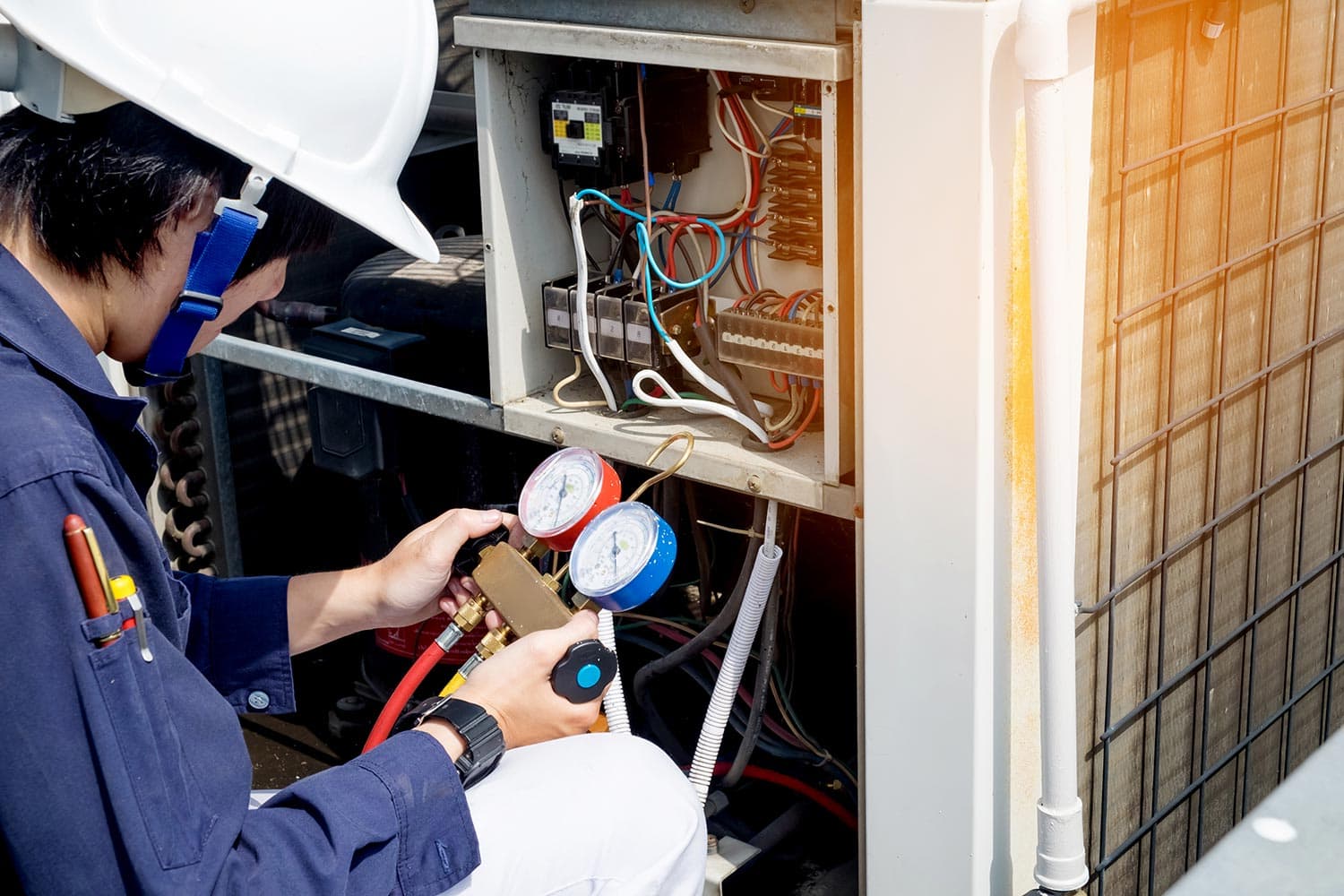
The air conditioner will not require much maintenance if the unit and other components are properly installed.
When it comes to maintenance, Rheem and Carrier are nearly identical in the cleaning process. Not only are they the same, but almost all manufacturers of air conditioning units require the same cleaning.
If you hire an HVAC professional to install your air conditioners, they may offer a cleaning service within a month or two because they can do the job more efficiently.
If we are going to talk about the repairs and replacement, the parts of Carrier air conditioners are more difficult to get than Rheem parts. The reason is that Carrier parts are mostly custom-made, unlike Rheem air conditioners that utilize off-the-shelf components, which makes them simple to maintain and repair.
However, the Carrier brand delivers customer service and handles all of this whether the air conditioner is under warranty or not.
Carrier HVAC Systems
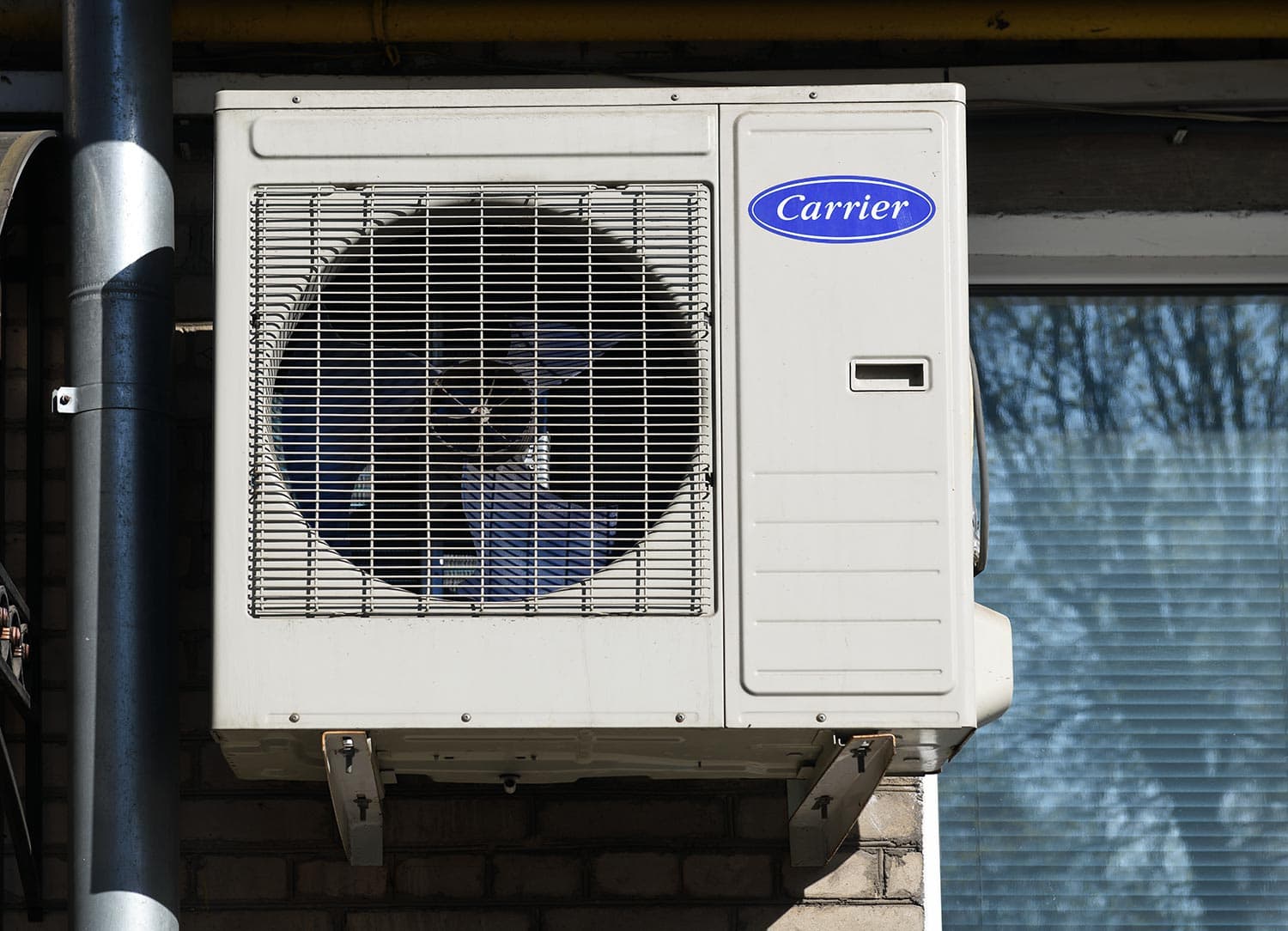
Pros:
- Carrier is the leader in HVAC systems.
- This brand offers a quiet system.
- If you are concerned about energy efficiency, Carrier is an excellent choice.
Cons:
- This is not recommended for homeowners who only have a low budget.
- If you are a homeowner who values a warranty more than anything, this brand is not the best choice for you.
According to professional reviews, Carrier manufactures some of the quietest HVAC systems and are the most excellent when it comes to energy efficiency, but they are also among the most expensive.
Carrier may be worth the buy, particularly if you desire the peace of mind that comes with owning a brand name air conditioner.
Both heat pump systems and air conditioning units of Carrier use compressors such as:
- single-stage compressors
- two-stage compressors
- variable-speed Copeland compressors
Carrier brand also features Puron, Carrier's registered trademark for its R-410a non-ozone refrigerant.
On the other hand, Carrier furnaces are equipped with these features:
- single-stage
- two-stage
- modulating gas valves
- fixed-speed blowers
- multi-speed blowers
- variable-speed blowers
Natural gas is what mostly powers the furnaces, but there is a possibility that it can convert into liquid propane. Carrier offers four oil-fired furnace models.
Rheem HVAC Systems
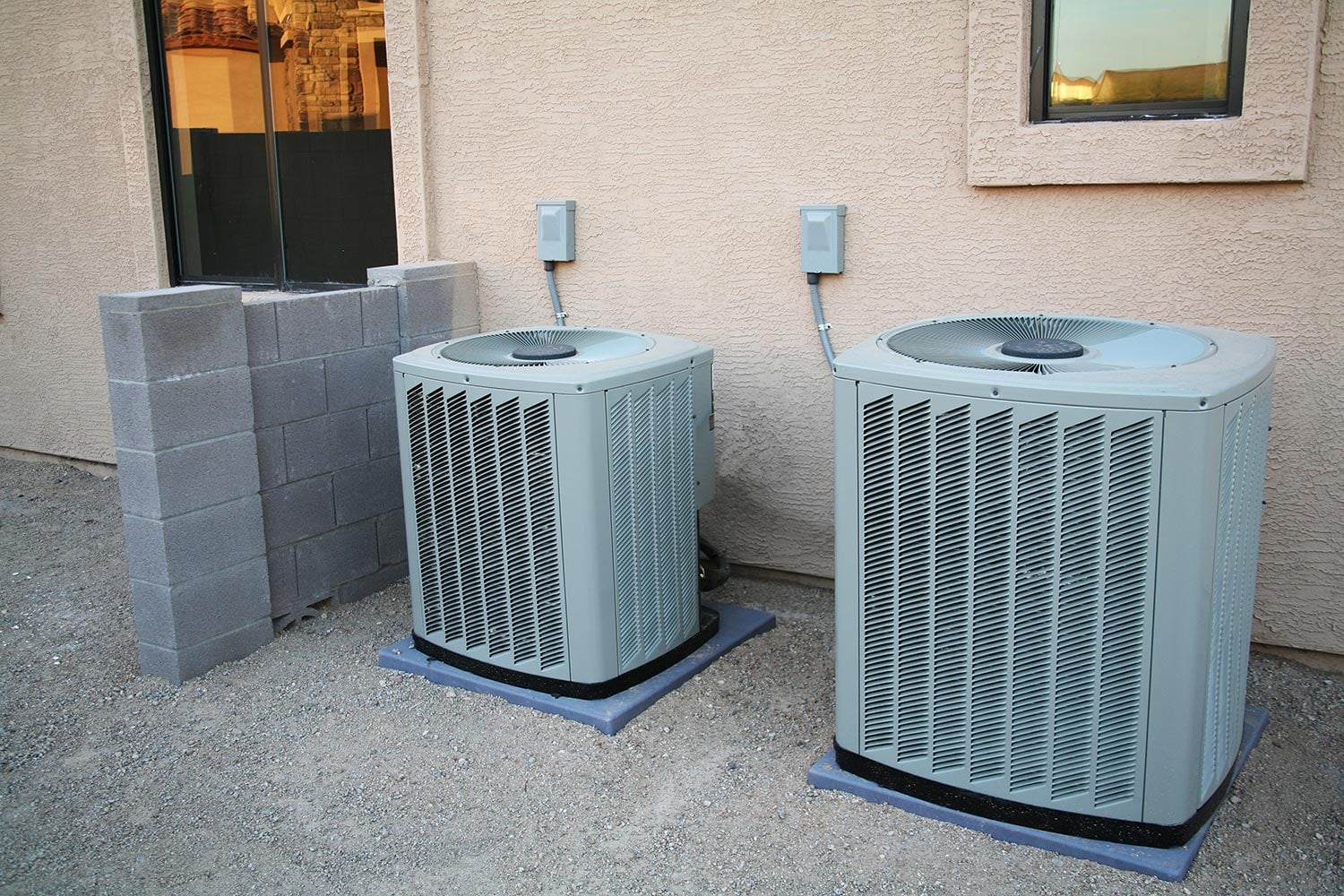
Rheem equipment for heating and cooling systems, as well as hot water heaters, is available from many air conditioning and heating contractors. Also, Rheem is an excellent creator of mid-tier cooling and central heating systems. However, like any other, Rheem also has its pros and cons.
Pros:
Rheem provides several advantages that both contractors and homeowners relish.
- Manufactures some of the industry's smallest air handler cabinets.
- The evaporator and condensing coils are made of aluminum.
- Uses plastic composite bases for the outdoor condensing units.
- Are typically inexpensive.
Cons:
Some of the issues we've discovered about Rheem include the following:
- Inadequate support from both the manufacturer and the supplier.
- Coil leaks occur often.
- You may experience numerous expansion valve failures.
- Cleaning an indoor evaporator coil can be challenging.
Wrap It All Up
Because installing new air conditioning units can be an expensive acquisition, one should exercise caution when selecting the best brand and product for their necessities. Additionally, HVAC professionals primarily choose either Rheem or Carrier because of the increased consumer fulfillment rate.
We hope you find this post useful. If you have any more questions, just leave a comment below, and we'd love to answer you. And if you want to keep reading, you can check these posts out!
How Much Does A Rheem Air Conditioner Cost
How Long is Rheem AC Warranty and Does it Cover Labor?
